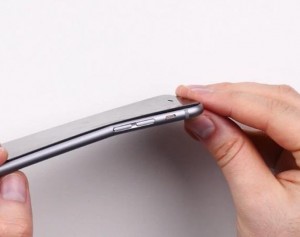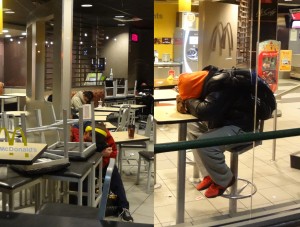Last Wednesday , Blackberry released its latest smartphone, Passport, and I wrote a blog about it. In the article (please check my last post about Blackberry if you have not read it, thanks), I mentioned that Blackberry’s biggest rivals now are Apple and Samsung. These two brands are currently the most popular ones in the smartphone market, and people believe that Apple and Samsung can easily gain a lot of customers with their great brand reputation.
The problem —
However, recently, when Apple released its iPhone 6 and iPhone 6 Plus, there were some negative comments on the phone, and the quality of the latest generation of iPhone has been doubted.
A few days ago, I saw a video online and it shows that a man is trying to bend the iPhone 6 plus using his hands, and within 5 seconds, the iPhone 6 plus really becomes bent. I was kind of shocked by it, and obviously I am not the only person to be shocked after watching the video. People complain about the bent iPhone 6, and start to worry about the quality of this generation’s iPhone products.
Apple’s reaction toward negative comments —
An Apple spokeswoman stood out and responded to this problem. She stated that the iPhone 6 and iPhone 6 Plus meet or even exceed the demand of customers. This official response somehow appeases customers, but there are still people who keep giving negative comments on the new iPhone models.
The result —
What is surprising is that these negative comments did not affect the sale of iPhone, because people trust this brand and they believe that Apple is related to innovative technology and fancy smartphones with high quality.
Positioning — Apple already has a high and stable position in consumers’ minds, and people believe that Apple is always the best in the industry.
The power of the company comes from the power of its brand.
Thus, will the negative comments and complaints about iPhone make Apple lose its customers? For me, I don’t think so.
Reference: pictures from https://www.google.ca/imghp?hl=zh-CN&tab=wi








